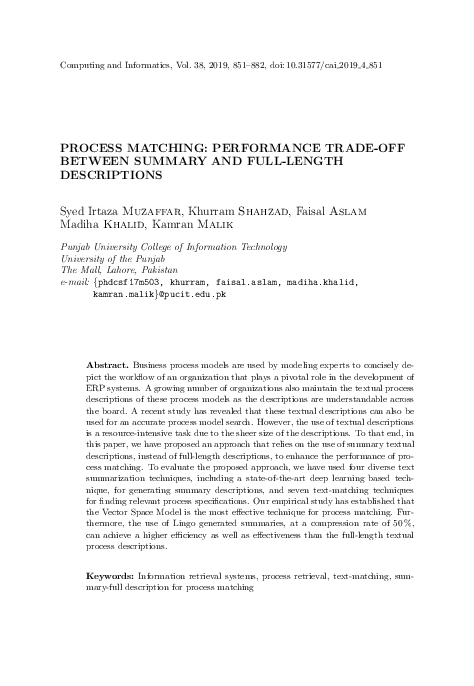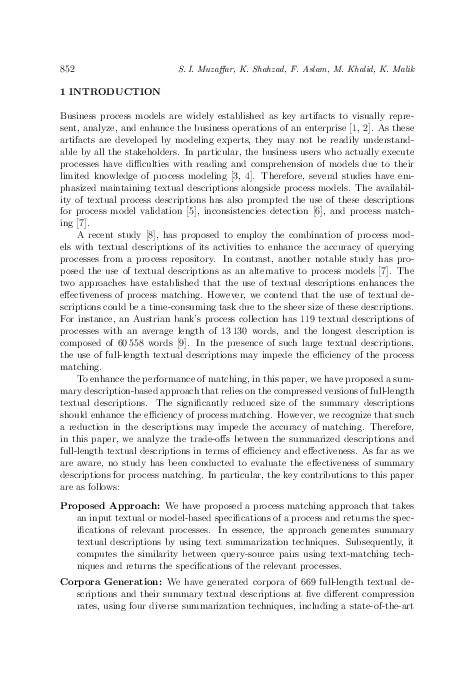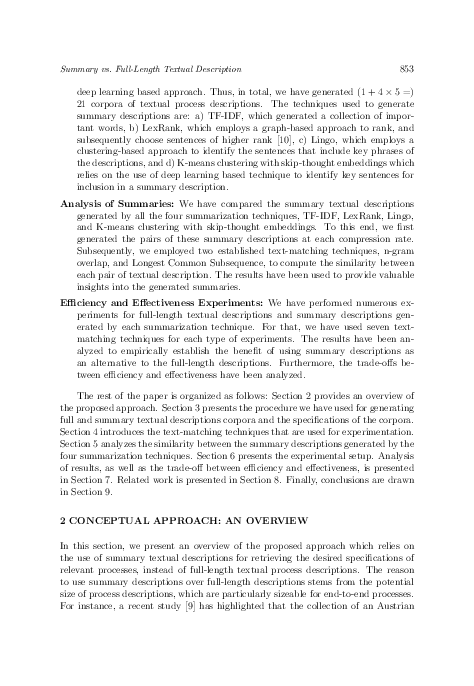Process Matching: Performance Trade-Off Between Summary and Full-Length Descriptions
keywords: Information retrieval systems, process retrieval, text-matching, summary-full description for process matching
Business process models are used by modeling experts to concisely depict the workflow of an organization that plays a pivotal role in the development of ERP systems. A growing number of organizations also maintain the textual process descriptions of these process models as the descriptions are understandable across the board. A recent study has revealed that these textual descriptions can also be used for an accurate process model search. However, the use of textual descriptions is a resource-intensive task due to the sheer size of the descriptions. To that end, in this paper, we have proposed an approach that relies on the use of summary textual descriptions, instead of full-length descriptions, to enhance the performance of process matching. To evaluate the proposed approach, we have used four diverse text summarization techniques, including a state-of-the-art deep learning based technique, for generating summary descriptions, and seven text-matching techniques for finding relevant process specifications. Our empirical study has established that the Vector Space Model is the most effective technique for process matching. Furthermore, the use of Lingo generated summaries, at a compression rate of 50 %, can achieve a higher efficiency as well as effectiveness than the full-length textual process descriptions.
reference: Vol. 38, 2019, No. 4, pp. 851–882


